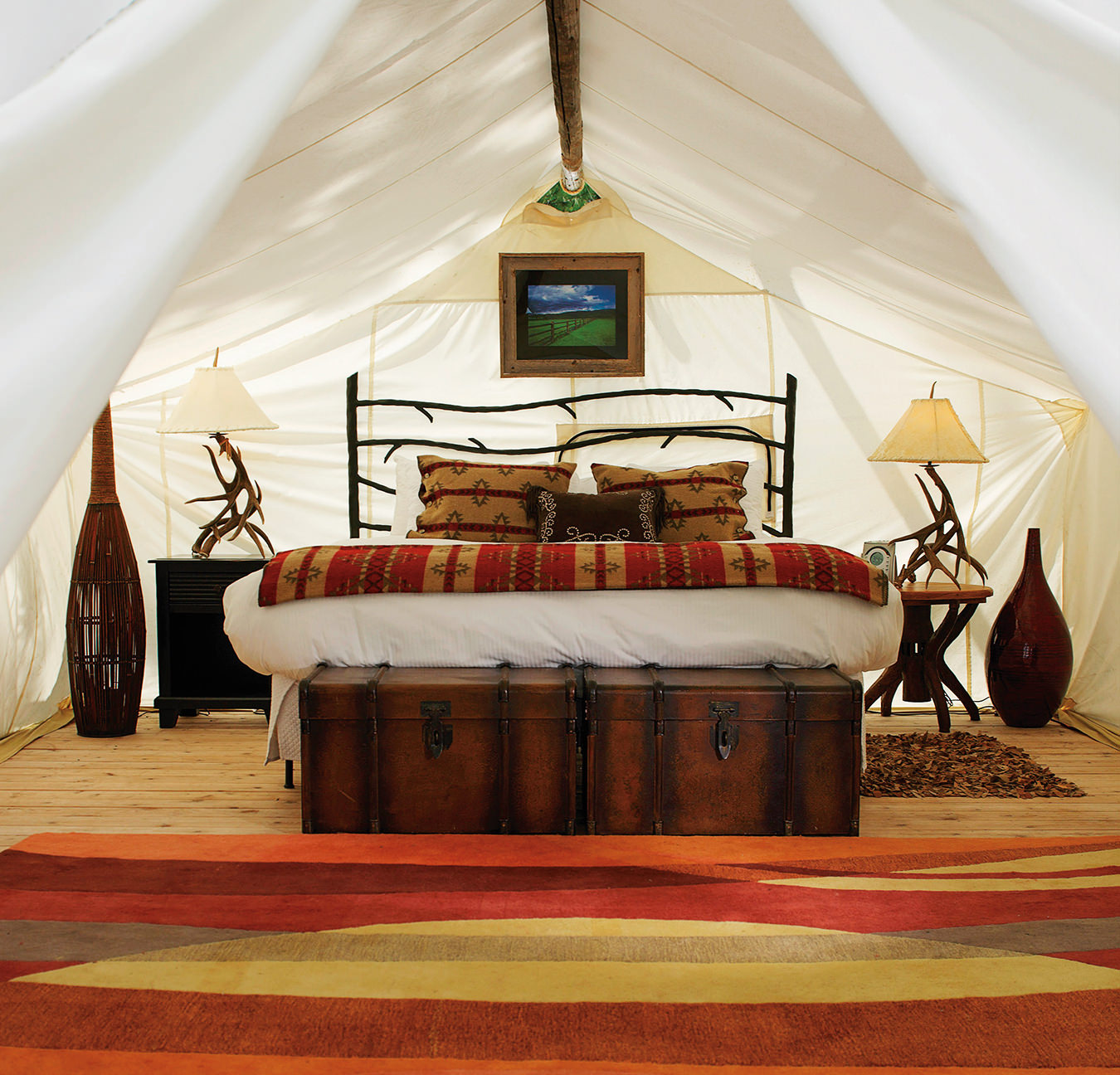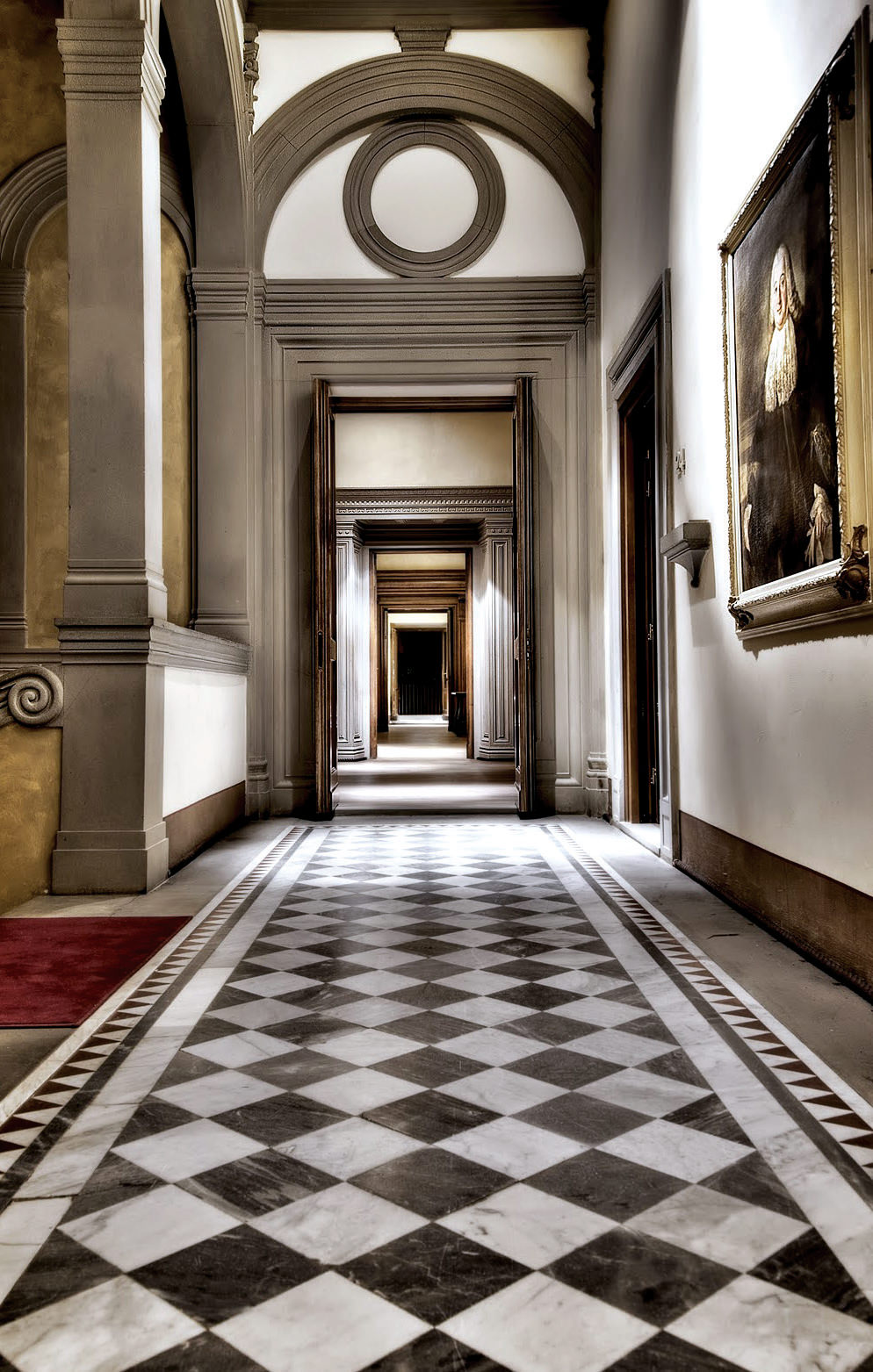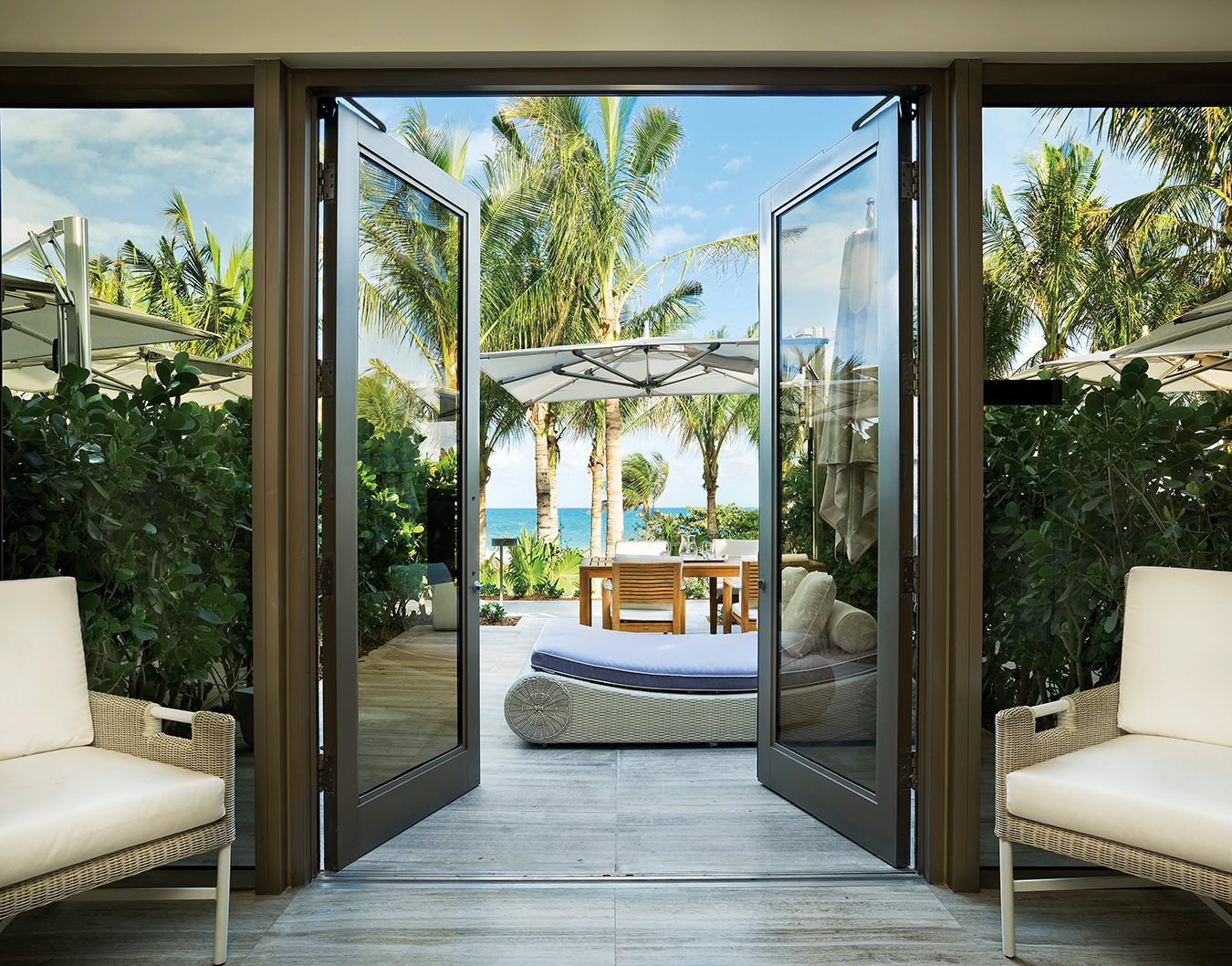-
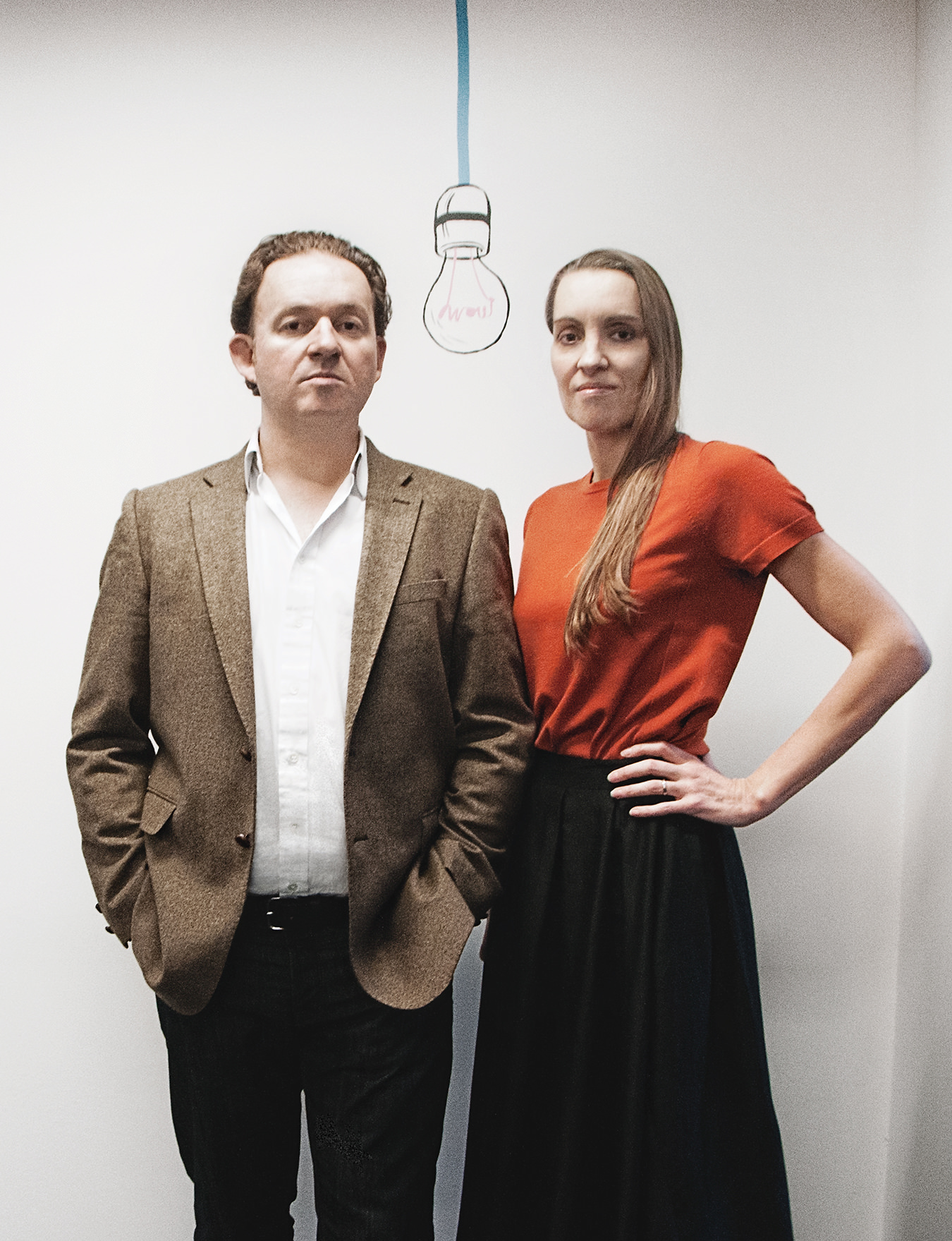
James and Tamara Lohan.
-
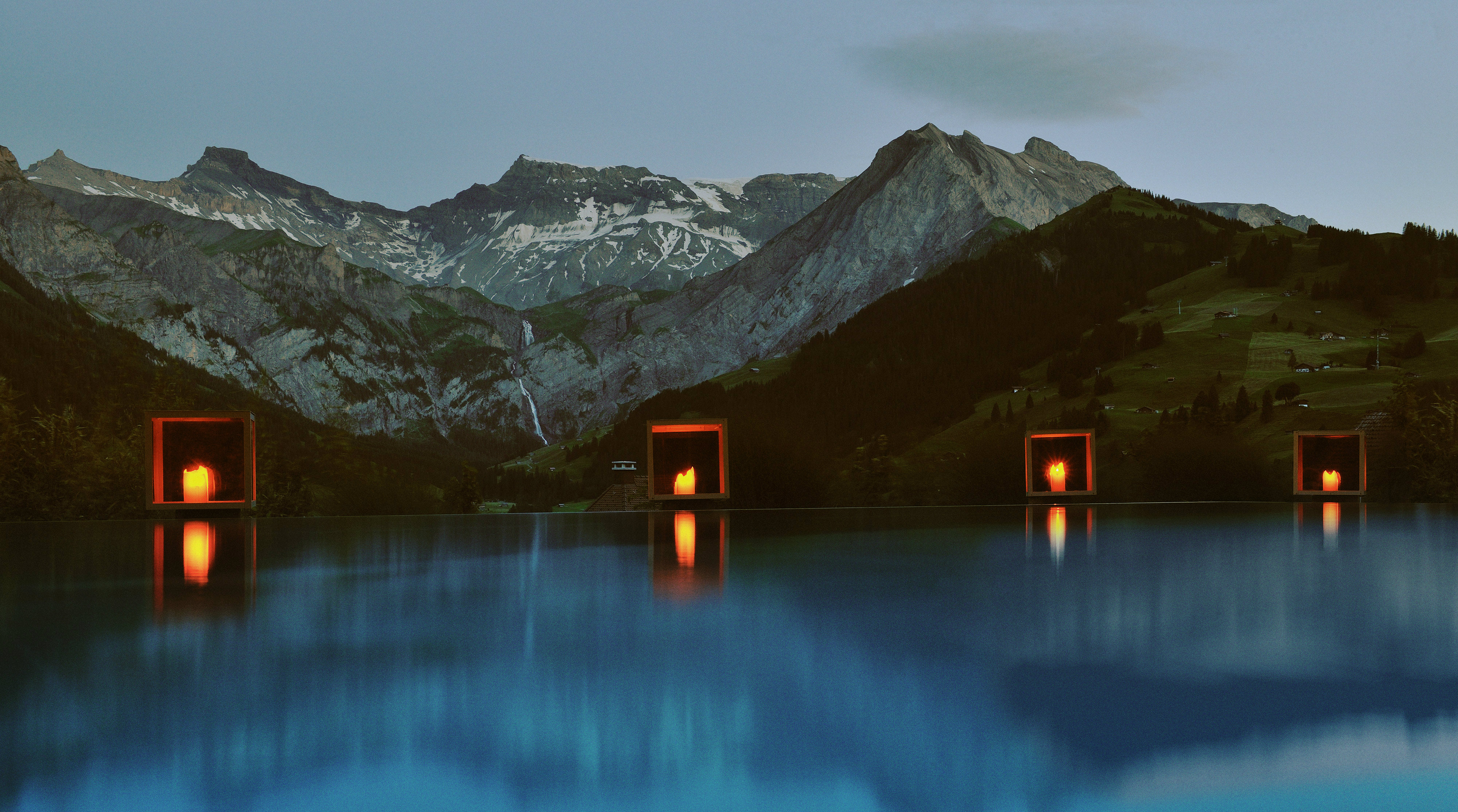
The Cambrian, Adelboden, Switzerland. Photo courtesy of the Cambrian.
-
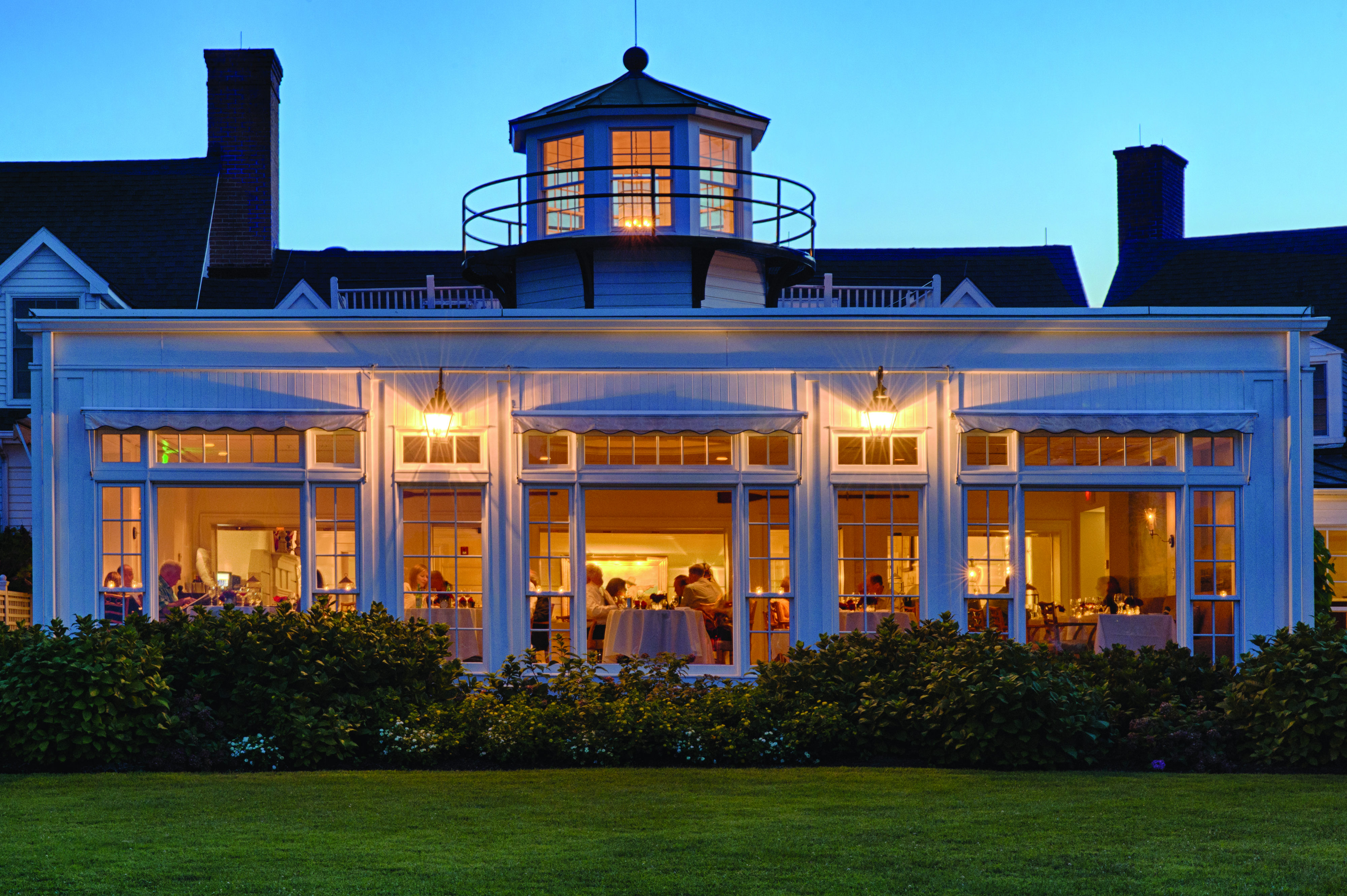
Inn at Perry Cabin by Belmond, Maryland, United States. Photo by Bill Morris, courtesy of Belmond.
-
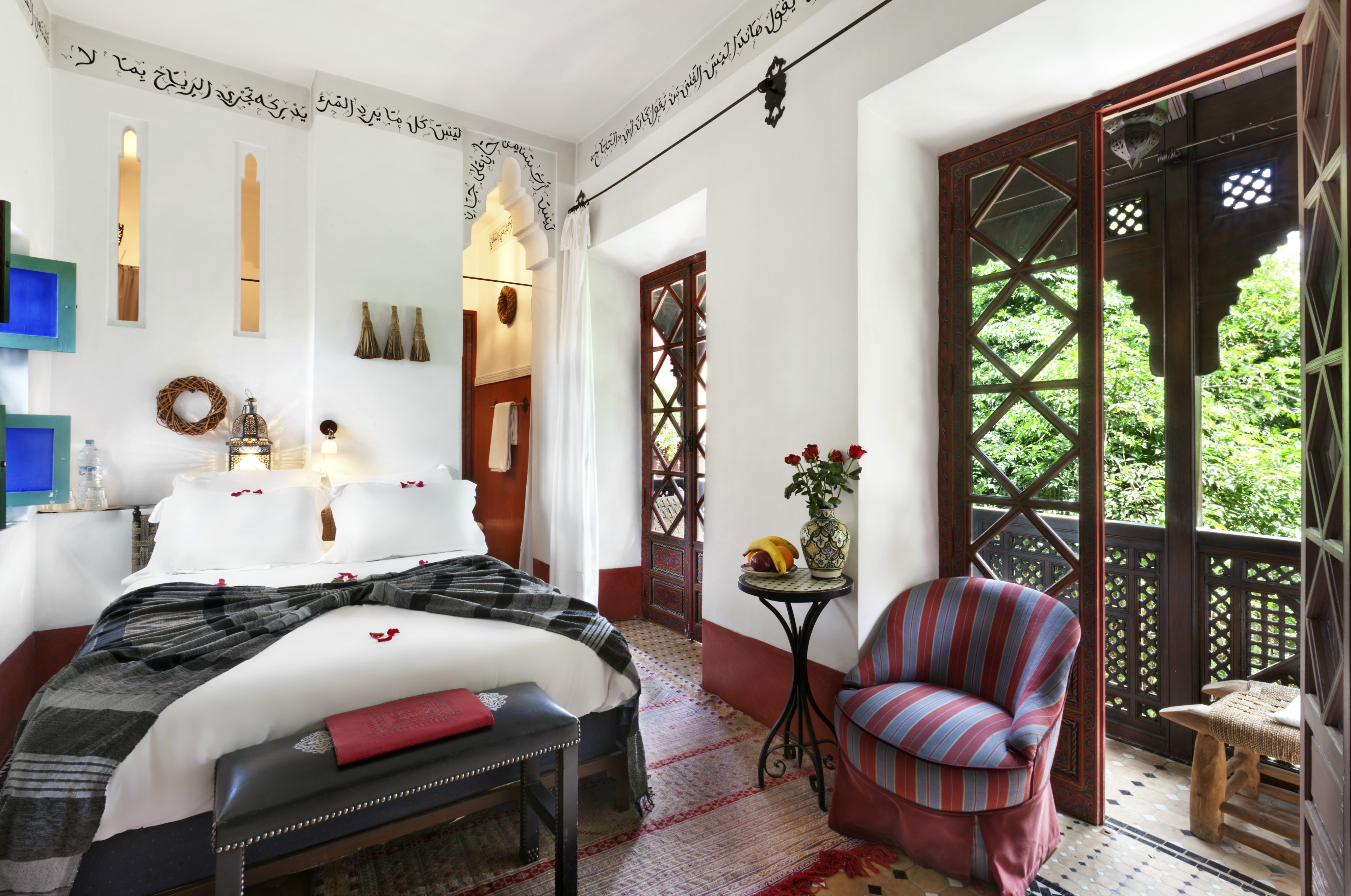
Riad Kaïss, Marrakech, Morocco. Photo courtesy of Riad Kaïss.
-
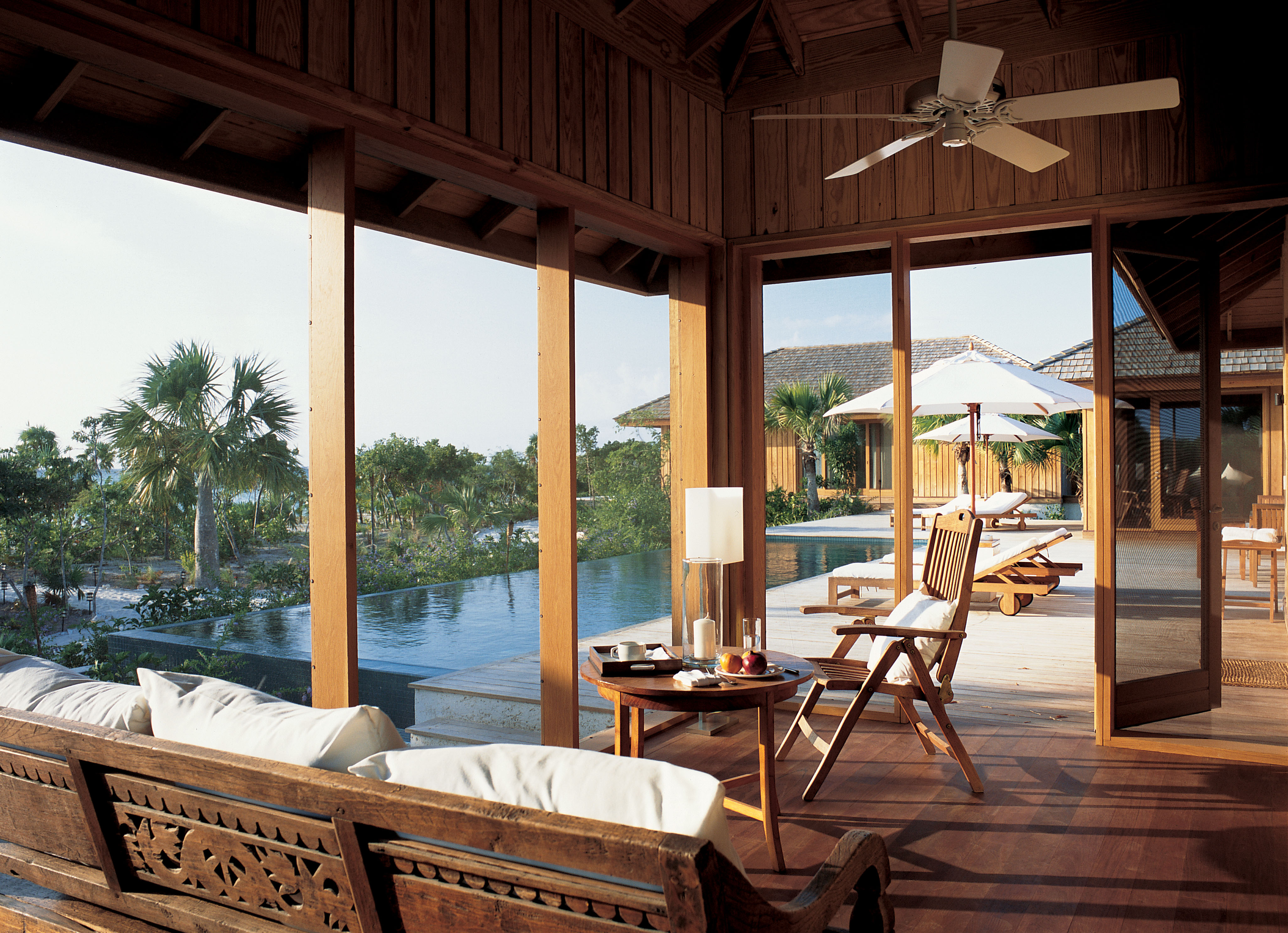
Parrot Cay resort, Turks and Caicos. Photo courtesy of Como Hotels and Resorts.
-
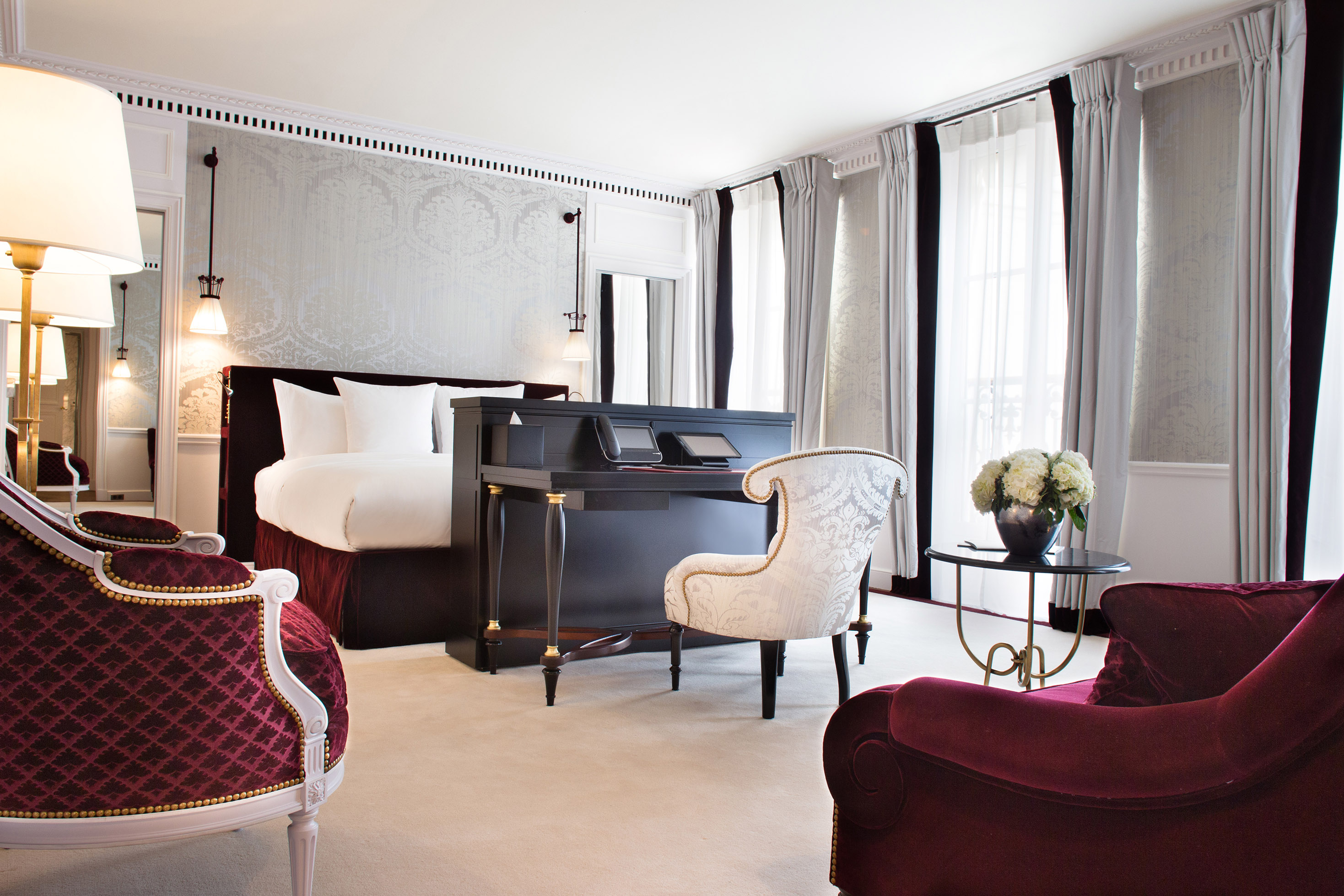
La Réserve, Paris, France. Photo courtesy of La Réserve.
-
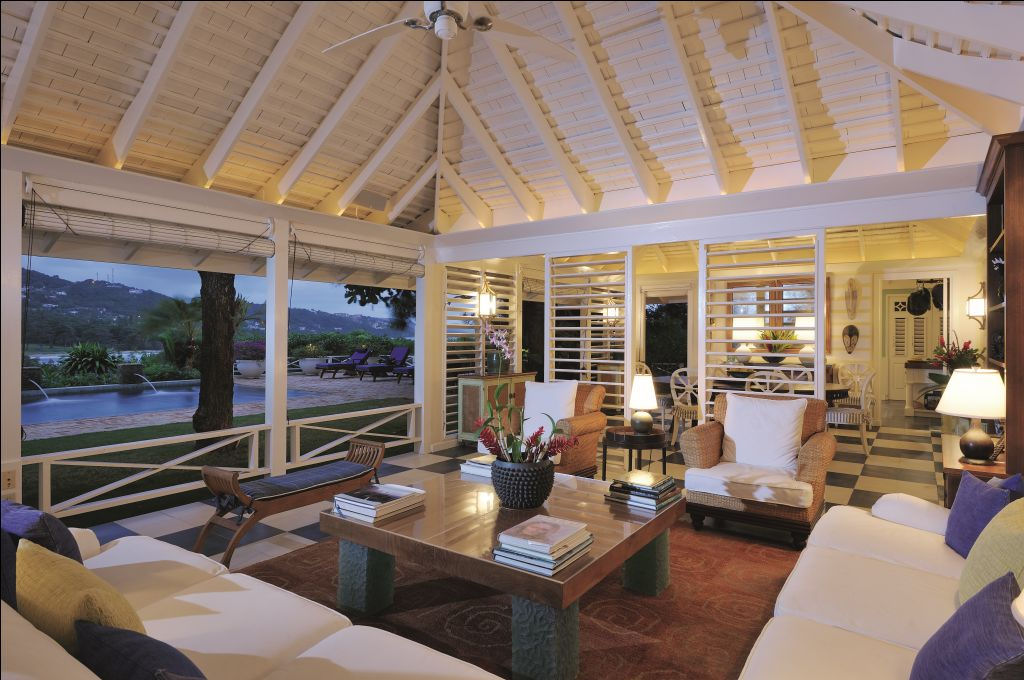
Round Hill Hotels & Villas, Montenegro Bay, Jamaica. Courtesy of Round Hill Hotels & Villas.
-

La Résidence d’Angkor by Belmond, Siem Reap, Cambodia. Photo by John McDermott, courtesy of Belmond.
Meet the Smiths
London-based husband-and-wife team James and Tamara Lohan are the founders of Mr & Mrs Smith, the boutique hotel guide and booking service.

There are certain getaways where, perhaps, the use of a pseudonym is essential. Signori Rossi for the Italians; Monsieur Dupont for the French; Mr. and Mrs. Smith for the British—names to use when you check in to a hotel with someone you’re not supposed to be with.
That said, English couple James and Tamara Lohan are no home wreckers. After a botched romantic getaway at an old and fussy hotel, the husband-and-wife team turned a disastrous amorous weekend into a business. In 2003, the Lohans launched their coffee-table guidebook, under the moniker Mr & Mrs Smith, revealing the finest boutique hotels, designer dwellings, and fanciful pieds-à-terre in the United Kingdom. Twelve years later, they’ve become an authority on global boutique travel.

The Cambrian, Adelboden, Switzerland. Photo courtesy of the Cambrian.
Determined that something must be done for everybody who “wants to get away to do more than play Scrabble together,” as James puts it, they self-published the first Mr & Mrs Smith hotel guide with £180,000 (roughly $410,000 Canadian), amassed from family and friends, and from re-mortgaging their house. “We didn’t have kids then and we had other day jobs, so we would have had to rent a house again, rather than own,” says Tamara matter-of-factly.
At the time, James was hosting parties in London (event organizing was his day job), and Tamara, an Oxford graduate with a degree in modern languages, was running a matchmaking agency. On their attempts to get away and spend time together, they found themselves constantly misled by guidebooks and glossy brochures about places that were far from romantic. The world of guidebooks “was very old fashioned and not talking to a then-30-something audience; terrible photography, terrible editorial, and nothing insider,” says James. Neither of the two knew anything about publishing, let alone the niche of travel guidebook publishing.
The plan “was to give the idea to a publishing house and let them do it, and it wouldn’t take any of our time at all,” says Tamara. But publishers were not interested in the project, telling the couple that the world didn’t need another guidebook. Undeterred, the Lohans went ahead with the project, setting the first Mr & Mrs Smith book in the U.K. “The market was Londoners, cash-rich, time-poor urbanites who needed to get away from the city. We’ve got a very strong culture in the U.K. of weekending, so there were lots of hotels in the Cotswolds,” says Tamara. (“We need that bit of quaintness when we’re urbanities, don’t we?” James adds in a deadpan.) Their initial intention for the guidebook was to compile 52 properties—one for every weekend of the year. They found they could only recommend 41.

The couple positioned Mr & Mrs Smith as a lifestyle brand, not a travel brand, selling copies through select design shops and bookstores. When the first book—offset paper, bespoke photography—turned a profit in the first year, the Lohans set to publish a second guidebook with a focus on European cities. In 2005, the company launched the online booking services. Today, the Mr & Mrs Smith website lists more than 950 boutique hotels around the world, personally visited by the Smith team, and then anonymously reviewed by tastemaker couples selected by Smith experts.
“Aspirational but accessible,” says James of the collection, “for a type of person that is looking for a stylish stay; they’re looking for something a little bit special, usually around a quirky, interesting detail. You can’t be a cookie-cutter type hotel, it’s got to have something about it.” The charms that make a hotel Mr & Mrs Smith–worthy are those that wrap themselves around your heart and make you forget about the outside world. “You don’t need us to tell you what a Hilton or a Four Seasons is,” continues Tamara. “We’re here to champion the unknown.”
Mr & Mrs Smith has won over the notoriously non-committal hearts of the modern jet set. “Aesthetics are important,” asserts James, “but how does it make you feel when you are in there? Height of the chairs, the size of the tables, is the lighting good, are the music levels just right—I’m obsessed with the details.”
“And showers,” pipes in Tamara. “You’re standing naked for 10 minutes trying to work out how the shower works and then you get blasted by some icy spray.”

Riad Kaïss, Marrakech, Morocco. Photo courtesy of Riad Kaïss.
“Bloody light switches,” continues James. “By taking away something, you can create friction. When you’re on holiday, you kind of want to let go and not think. And by introducing technology that you have to really concentrate on, you’re making people think again and engage their brains rather than making it effortless. And it’s that effortlessness which is actually really difficult to create.”
Mr & Mrs Smith has won over the notoriously non-committal hearts of the modern jet set. “Aesthetics are important,” asserts James of the hotels selected, “but how does it make you feel when you are in there?”
When the company started, the guidebooks were 100 per cent of the Mr & Mrs Smith revenue; not so any longer. Bookings are the main driver of the company and account for 70 per cent of revenues, of which Mr & Mrs Smith takes 15 per cent. As the company’s chief technology officer, Tamara handles the servers—“to ensure we do not fall over,” she says. Initially Mr & Mrs Smith used a third-party booking engine to drive bookings, but “they weren’t fast enough in making the requested changes, and it was very frustrating,” Tamara recalls. The need to invest in an in-house system became apparent. By building their own booking engine, the company has bypassed the global distribution systems used by many agencies. Hotels update their availability and give Mr & Mrs Smith the best rates available as part of their contract, so smithhotels.com mirrors what the hotel sells directly. “A few hotels work on request, so you have to book by phone because they don’t even have a reservation system. They’re so remote they’re getting their post by carrier pigeon or something,” says James.

Mr & Mrs Smith has become an international entity. Offices in London, New York, and Melbourne—with a total staff of 120—means the company can operate 24/7, quite a feat for a small business that represents less than 1,000 hotels. “The U.K. office stops at seven and hands over to the New York team, who then hands over to the Melbourne office,” explains Tamara. The company boasts writers, photographers, and in-house travel specialists fully trained in the hotels on offer. The team is not a hands-off call centre but, as is evident at their London office, completely hands-on; there are no separate offices, no cubicles—it’s an open plan with James and Tamara actively in the mix.
There are also existing partnerships with American Express, where exclusive deals are offered to Centurion and Platinum customers, as well as with British Airways. “That took nine months to develop and three years to sell it to them,” says Tamara of the BA partnership. “It’s fully integrated, so [British Airways] take our rates, inventory, content, imagery, everything—stick it into ba.com and package it with flights.” A similar partnership with Air Canada is of interest to Tamara, as Mr & Mrs Smith has become active in Canada.
“Everyone and anyone” is a competitor, says James. “The difference with us is, simply, you cannot buy your way into our collection you have to be invited by us. It’s not about stars or diamonds or rosettes or whatever else. I don’t care about those measurements, I care about the experience, and I care about that experience for the value of the money we’re charging you. It can be a pub in the middle of Wales or it can be an all-singing, all-dancing city hotel. It’s really simple as an ethos. I think we get it pretty right. We have no other agenda. We’re not in the business of representing average hotels. We only want to represent the best in what they can do. That’s it.”
“Boutique hotel” is a term born in North America and the U.K. in the eighties. One of the first opened its doors in 1978: Blakes hotel in South Kensington, London—a Mr & Mrs Smith pick. Hotelier and real-estate developer Ian Schrager popularized the boutique hotel as phenomenon. Today, multinational chains have honed in, creating their own brand of lifestyle hotel, and, by doing so, blurring the definition. “Blasted Google has set the rules for this. We all put in ‘boutique hotel’, that’s what we know. You can be a mould breaker as much as you want, but sometimes you’ve got to toe the line,” says James of the semantics. And if you try to come up with some fancy pants names for boutique hotels that Google doesn’t understand, you’ll get zero traffic coming to your site.”
As the company expands, the Lohans envision an increase in the number of hotels it lists. “We think around 1,200 over the next three years,” says Tamara. “It’s not about having more hotels; it’s about the right hotels. We visit every single property. We meet the owner. We meet the manager. We go to extraordinary lengths to make sure the hotel is right.”
“It’s not about having more hotels; it’s about the right hotels. We visit every single property. We meet the owner. We meet the manager. We go to extraordinary lengths to make sure the hotel is right.”
A return-to-basics detail can be luxurious, even to the design-conscious generation. By recognizing boutique establishments of different styles and functions, appealing to different demographics, the Lohans see themselves as redefining luxury. Over the last 12 years, the Lohans have come to understand “just how hard it can be for a hotelier to get it right,” says Tamara. Even so, the couple wants to do a Smith hotel.
“Many hotels are designed by architects. So, often, the building can look good but it’s bloody uncomfortable. Or hasn’t been thought through from actual experience,” says James. “If ever we did a hotel, I would literally do everything from lying in the bath to sitting at the tables before I ordered anything. I know you can do 3-D drawings, but so often they’re designed by people who haven’t had enough experience in hotels themselves.
“We’ve actually been writing down our perfect hotel for the past 10 years. We keep notes on everything—plug points, the fan, that the loo doesn’t stay on if you go for a pee in the middle of the night that keeps you awake. Little things like this. The details of what a hotel room can be are rarely, rarely thought out by architects and interior designers.”

James and Tamara are most proud of managing to run their global business while still finding time to spend with their two children. In 2013, inspired by their family, they launched Smith & Family, a cherry-picked selection of hotels that deliver a family-friendly welcome in stylish surroundings. “We’ve got a seven-year-old and a five-year-old, and their idea of a wonderful hotel and ours is still quite worlds apart right now,” laughs James.
If that Smith hotel ever does come to fruition, the first person the Lohans plan on employing is not the architect, not the designer, not even the structural engineer. “The head cleaner,” James says, a tip given to him from his friends and fellow Brits Chris Corbin and Jeremy King. “I need to know everything that the head cleaner has problems with so that a room can be designed around trying to get rid of those problems. From nightmare chandeliers to dust, to round feet on the sofa so your Hoover can get around more easily… The things that a cleaner goes through that you don’t even think about. The bed has got to have wheels on it so you can pull it out so you can dust behind it. I wouldn’t want to look behind most hotel beds.”
The Lohans have yet to entertain any exit strategies, but, “If one day we were not working at Smith,” says Tamara, “we would still be interested [in hotels], and if someone said to us ‘oh, there’s this fabulous little boutique hotel just down the road,’ we would have to go. It’s like an itch you have to scratch.”

